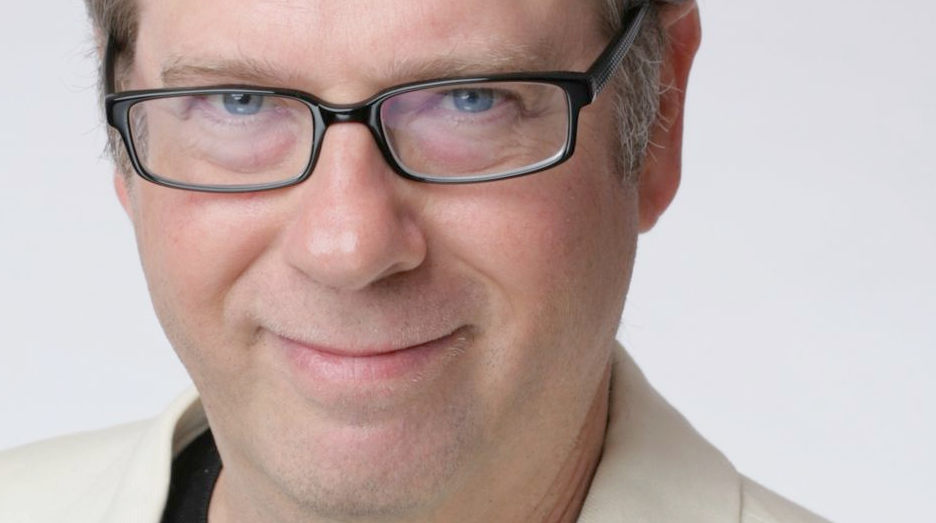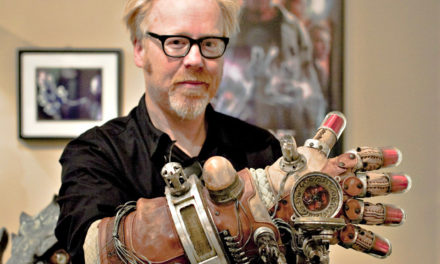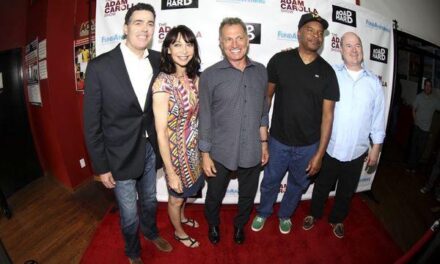Though the name Stephen Tobolowsky may not register immediately, I can assure you the face and the voice behind it will. It may be doing this prolific artist a disservice by mentioning “Ned the Head” Ryerson. But his iconic turn as Bill Murray’s pushy, former classmate in Groundhog Day cemented his status as an A-list character actor.
Under thirties may know Tobolowsky from Community, Californication, Entourage, Deadwood, Glee, and Heroes, to name a few. USA Today calls him “the ninth most frequently seen actor in movies.” Suffice it to say, he’s earned his “that guy” reputation.
Since 2009, his podcast, The Tobolowsky Files, a radio companion to his film Stephen Tobolowsky’s Birthday Party, has captivated audiences around the world. It’s an intimate collection of stories that have shaped Tobolowsky’s colorful life. In 2012, PRI picked up the show.
IMDB has you at 225 acting credits since your TV and film career began in in the mid ’70s. What role do you think you are most identified with?
Most people identify me with Ned in Groundhog Day. I went down the wrong corridor in the airport in Iceland. It was the corridor that makes all of the alarms go off. The three people in Iceland that are allowed to have guns came running in. The lead policeman looked at me, lowered his weapon and smiled and said, “Oh, it’s Ned.” (Add Icelandic accent to get the full effect.) It was a good movie, a good part, and everyone saw it.
Describe the Icelandic incident that launched your storytelling pursuit.
Different Icelandic story. I was riding a horse on the side of an active volcano. What could possibly go wrong? I was hit by a big wind that lifted me and the horse off of the ground and deposited us rough on the other side of the road. My horse got spooked…go figure…he ran away. Somewhere on the other side of the mountain I was thrown onto a hardened lava flow.
I have no memory of this. Massive concussion. I broke my neck in five places. I flew back to America. My doctor said I had a fatal injury – which was a terrible misuse of the word fatal. However, it got me thinking. What if it was? What if I never got to see my family…my boys again. So while I was recovering, I began to write down the true stories of my life so my kids would know who their dad was; that became the podcast, which became the radio show, which became the book The Dangerous Animals Club.
What was the advice you gleaned from “The Weekly Reader” when you were in the fourth grade?
Two things I recall. I thought gosh, in the year 2000 I will be 49 years old. I was right about that. They also had an article about killer bees in South America, how in the year 2000 they would have made their way to America. The WR was right about that one too.
“Stephen Tobolowsky’s Birthday Party” is highly regarded among critics and general audiences alike. How did it evolve into the Stephen Tobolowsky Files?
I always told stories. My friend and director and cinematographer Robert Brinkmann said, “we should film you telling them.” The advent of high-def cameras made that possible. We made the movie in 2005. David Chen of Slashfilm.com loved the movie and wanted to interview me about it. I had a broken neck at the time (See the intersection of events). David asked if I wanted to do a new version of Birthday Party as a podcast. He would produce. With the broken neck and the stories I had begun to write…it seemed like fate. Now we have done 61 episodes.
You stories run the gamut. Many touch on your experiences in Hollywood. What kind of feedback do you get from the other actors and directors who played a role in them?
I heard from some of the folks at Glee that they like Ep 16 Dating Tips for Actors about Glee. I mainly hear from producers and writers that they like the stories. Don’t hear from too many actors. Maybe they don’t listen.
You seem to draw wisdom from life events that many of us would just sulk over or shrug our shoulders at. How did your open heart surgery inform the way you live? How has fatherhood changed you?
In the present, big events are separated from little events by time. How long does something take to do. For example, in college I studied three days for my Geology exam. Three days straight. As we live the time invested vanishes and we are only aware of the impact. Example: Saying goodbye and leaving my girlfriend Beth [writer and actress Beth Henley; she wrote Crimes of the Heart] only took maybe 45 minutes. I think of that forty five minutes often and how it changed my life. I only think of the geology exam when I drive past a eugeosyncline formation.
The big events, good and bad, seem to redefine themselves over time. They become new events again and again. How we see them redefines us. For example Beth. It was a terrible parting. For years I grieved. Now I see the positive. The event didn’t change. I did.
It is important to keep looking back at the events that made us, just to see if they have changed. Heart surgery was life saving and life changing. The event is with me every day. My chest still hurts so it’s easy to remember. It made me much less afraid of death. That is a big deal. Fatherhood made me less selfish. Made me realize my life was now dedicated to making another life possible and successful.
Please indulge me on this one: “True Stories” is one of my favorite movies. How did you wind up as a writer on that film?
When Beth won the Pulitzer Prize for Crimes of the Heart, she got a lot of attention and a lot of fans. Two of them were Evelyn Purcell and Jonathan Demme. Evelyn wanted to produce and direct something Beth wrote. Jonathan was working on Stop Making Sense at the time. He asked if Beth and I wanted to see his cut of the film. We went to the Academy and saw the film with Jonathan and the Talking Heads in an otherwise empty theater. That evening David Byrne started asking me what I thought of the movie. We talked for a hour or so.
The next day David called our house and asked Beth if she wanted to help him write his movie, True Stories. Beth went over and came back later, and said she couldn’t make heads or tails of what David was saying. She said he should talk to me. David called and asked if I could come over. In his living room, he had a hundred or so pencil drawings taped to the wall. He said: “can you make a story out of these drawings?” I said I would try.
That night I wrote an outline and sketched out some scenes. I told him he could keep what he wanted or just throw the thing away. He hired me to write the screenplay and then asked if I minded if Beth worked with me. I told him that would be great. We produced a first draft in 19 days. We turned it in and didn’t hear anything from David for almost a year.
One evening I was driving and David rode along side my SUV on his bike. I yelled hello out the window. David was happy to see me and asked if he could come over that evening. I was thrilled. He came by and said he had re-written most of the script. There probably wasn’t much left of what Beth and I did but he wrote a song about my ESP experiences for the movie: Radiohead. He played it for me. It was great. They shot the film. Before it was released David called up and asked if I would take the screenwriting credit so it didn’t look like he did everything on the movie. Which he did. He thought at the time it would make him a target for the critics. Maybe he was right. That’s how I got writing credit on the film.






